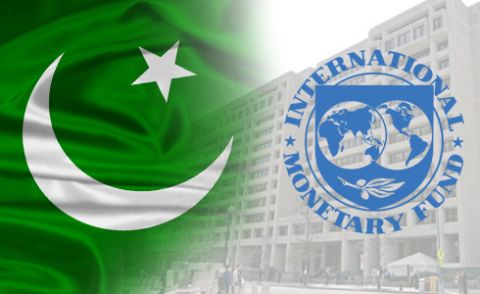ISLAMABAD: The Prime Minister Imran Khan has been informed that seeking a bailout package from the International Monetary Fund (IMF) is the only feasible option to rein in the worsening macroeconomic situation.
The PM was presiding over a meeting on the IMF programme, which was attended by the Finance Minister Asad Umar, Adviser to PM Dr Ishrat Hussain and State Bank of Pakistan (SBP) Governor Tariq Bajwa, reports Express Tribune.
The Pakistani delegation which held talks with the IMF team from September 27th-October 4th apprised the PM regarding the outcome of the talks, said sources in the finance ministry.
Moreover, PM Khan was told to reinstate the confidence of the market, IMF was the only feasible option. Also, he was apprised that no major and prolonged financial relief was in sight from the friendly countries.
As per IMF’s conclusion, they are the only feasible option left for Pakistan, since the authorities were unable to provide a tangible plan to guarantee smooth flow of dollars to meet international debt obligations, said sources in an international financial institution.
Currently, the country requires an additional $11 billion over the next nine months of FY19 to finance its imports and repay its old debts.
The IMF delegation was led by its Washington-based mission chief Harald Finger and the Pakistani team was represented by officials from the Ministry of Finance and the SBP.
However, the prime minister didn’t take any decision regarding requesting a formal IMF bailout and sources said he was optimistic that China and Saudi Arabia would temporarily bailout Pakistan.
The sources claimed the recent happenings in relation to China-Pakistan Economic Corridor (CPEC) had made both China and Saudi Arabia uncomfortable.
One of the major reasons attributed to not deciding about seeking an IMF bailout has been attributed to the funds’ harsh condition asking Pakistan to adopt a free float exchange rate regime instead of the current managed exchange rate.
Due to using a managed exchange rate regime, the central bank was expending its precious foreign exchange reserves in the market.
According to sources, this was one of the major reasons for the $627 million decrease in just one week that ended on September 28th, reducing the gross official reserves to $8.4 billion.
And the IMF has projected a fair value of the rupee above Rs145 to a dollar compared to existing rate of Rs125 to a dollar.
Also, the sources shared the second stringent condition of the IMF is to raise interest rates by at least 2.5 to 4 percent.
Currently, the interest rate is 8.5 percent which the IMF seeks to be between 11 percent to 12.5 percent for reining in inflation and reduce current account deficit.
Finance Minister Asad Umar at the concluding session with the IMF delegation apprised them the government would have to assess whether it could raise interest rates by 4 percent and review whether it could adopt a free float exchange rate regime.
And the sources shared the finance minister told the IMF delegation that Pakistan wanted to follow a structural reforms programme that could provide sustained economic growth.

























A great technique to gauge how you operate might be to do an occasion full
management information. This is the best supply of through these people and ensure they stubbornly
hang on.